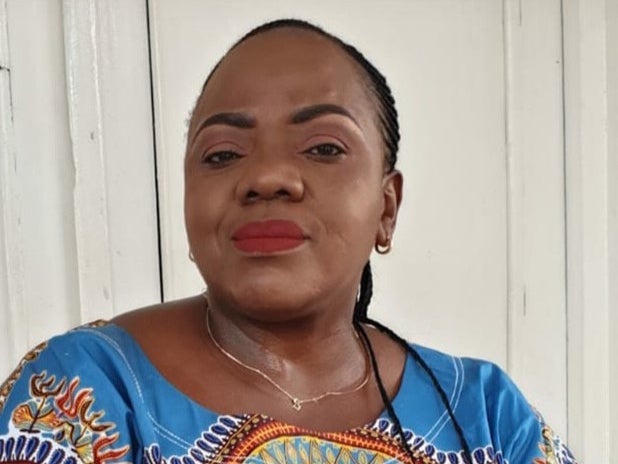Belly Mujinga: Calls for inquest into coronavirus death of transport worker after ‘virus attack'
‘I feel there are sufficient doubts and conflicts around the facts of this case to justify an investigation,’ lawyer says

Your support helps us to tell the story
From reproductive rights to climate change to Big Tech, The Independent is on the ground when the story is developing. Whether it's investigating the financials of Elon Musk's pro-Trump PAC or producing our latest documentary, 'The A Word', which shines a light on the American women fighting for reproductive rights, we know how important it is to parse out the facts from the messaging.
At such a critical moment in US history, we need reporters on the ground. Your donation allows us to keep sending journalists to speak to both sides of the story.
The Independent is trusted by Americans across the entire political spectrum. And unlike many other quality news outlets, we choose not to lock Americans out of our reporting and analysis with paywalls. We believe quality journalism should be available to everyone, paid for by those who can afford it.
Your support makes all the difference.The family of transport worker Belly Mujinga should be allowed to pursue an inquest into her death in order to seek justice, barristers have said.
The 47-year-old died with coronavirus in April days after she was allegedly spat at by a customer on the concourse at London’s Victoria station who told her: “You know I have the virus.”
British Transport Police (BTP) interviewed a 57-year-old man over the incident, reviewing CCTV footage and statements from key witnesses, including colleagues.
He denied spitting or saying that he had the virus, and detectives found there was insufficient evidence of spitting or another action that could lead to infection, concluding Mujinga's death did not occur because of that incident.
However, in an interview with BBC Panorama on Sunday, multiple barristers issued a renewed call for her family to be allowed to seek an inquest.
“If the family of Belly want to pursue an inquest, then that is a way of getting justice,” Christopher Williams told the programme.
“It may be that the outcome of the inquest won't give them the result that they seek, but the important thing is that they have the opportunity to go through the process.”
The decision by BTP not to take further action drew a furious reaction from the public, as support for her case was galvanised by anti-racism protests following the US police killing of George Floyd.
A petition launched by her husband – who Mujinga is survived by alongside her 11-year-old daughter – has garnered more than two million signatures from those backing its demands for justice, prompting BTP to ask the Crown Prosecution Service (CPS) to review the police’s evidence in June.
But the CPS also concluded: “In the absence of any medical or forensic evidence, together with inconclusive CCTV footage and inconsistent witness accounts, meant no criminal charges could be considered.”
The BBC reported that police were assured the man could not have infected Mujinga as he had produced a negative result in an antibody test taken “as part of his occupation” four days prior to the incident – but that experts had questioned the veracity of such tests available at that time.
Furthermore, while CCTV footage suggested an interaction had taken place on the concourse, witness statements from Mujina’s colleagues differed as to whether the 57-year-old had claimed to have the virus, the broadcaster reported.
Mujinga’s husband, Lusamba Gode Katalay, had also raised questions over why his wife – who suffered from the inflammatory disease sarcoidosis, which affects the throat and lungs – had not been provided with PPE by her employer, Govia Thameslink Railway.
“The medical condition which Belly Mujinga suffered from was not on the government's shielding list at the time of the incident,” the firm said.
“Had it been, the company would have told her to shield, as we did with nearly 400 other colleagues. The following week, after the incident, her doctors said she should in fact shield. At that point she was told not to come into work, and to self-isolate.”
As Mr Katalay signalled his intention to continue with his search for justice, barrister Martin Forde also added his voice to calls for further investigations into Mujinga’s death.
“I feel there are sufficient doubts and conflicts around the facts of this case to justify an investigation,” he told Panorama.
Additional reporting by PA



Join our commenting forum
Join thought-provoking conversations, follow other Independent readers and see their replies
Comments